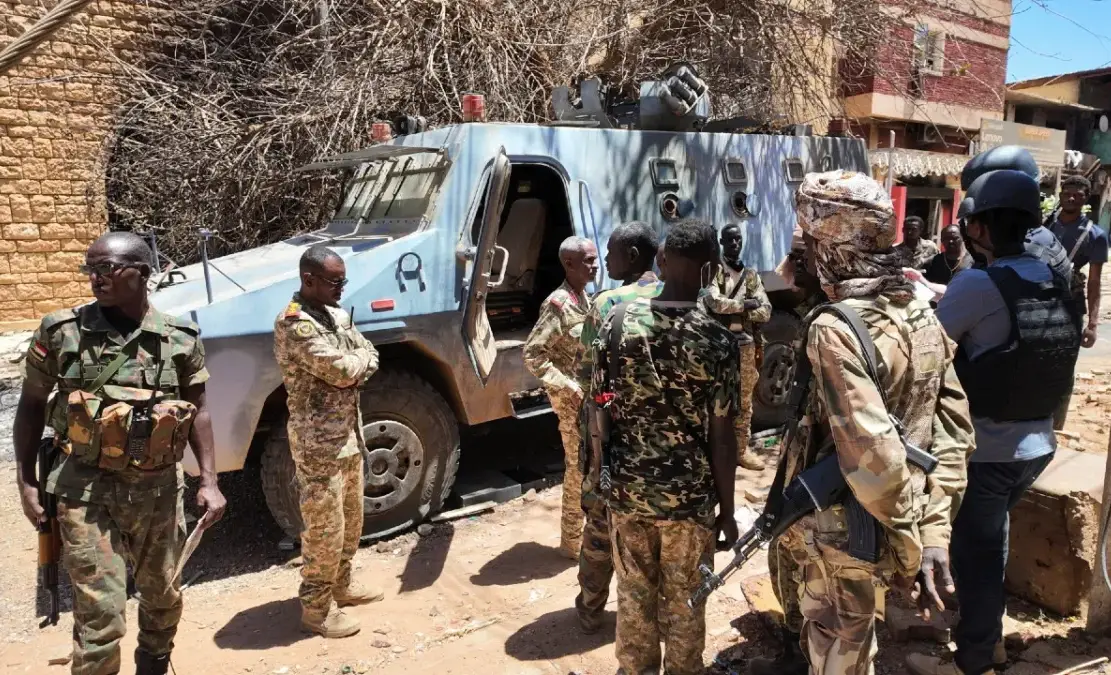Recent reports about the alleged presence of Colombian mercenaries in the Sudanese conflict, linked to private operations contracted by the United Arab Emirates (UAE), are much more than an isolated incident. The involvement of former Colombian soldiers in foreign war zones is not new, but in the case of Sudan, it reveals the intersection of multiple dynamics such as the privatization of war, the projection of power by global and regional actors, and an increasingly fragmented approach to international security.
Today, Sudan is the stage of a highly complex internal war, where the Sudanese Armed Forces (SAF) and the Rapid Support Forces (RSF) vie for political, economic, and territorial control of the country. The conflict is not only domestic but fueled by regional alliances that make Sudanese territory a space of strategic competition. The UAE has been accused of materially supporting the RSF, while there is evidence of Egyptian backing for the SAF. These alignments are not just about political affinities but also about Sudan’s strategic location as a gateway to the Red Sea and a bridge to the Sahel and the Horn of Africa.
In this context, the hiring of mercenaries—and other actors linked to mercenarism—is no accident but a calculated component. The counterinsurgency experience of former Colombian soldiers, acquired during decades of internal conflict, has made them a valuable asset in the global private security market. Their profile combines discipline, physical endurance, tactical knowledge, and willingness to take risks in exchange for significantly higher pay than in civilian security jobs. Demand for such personnel has grown in conflicts where sponsoring states seek to keep formal distance from direct operations, avoiding legal or diplomatic consequences.
The Sudanese case also reflects the growing trend toward the outsourcing of war. Private military companies, as well as individual contractors, operate in a gray zone between the legal and the clandestine, carrying out missions that range from protecting strategic facilities to active combat. In volatile environments like Sudan, the tactical value of troops with solid training and irregular combat experience can tilt the balance of power with small but decisive shifts.
For Colombia, this presence raises questions about the indirect consequences of “exporting” military human capital. The involvement of ex-combatants in external conflicts is not only an economic phenomenon but also a geopolitical one, embedding Colombian nationals in actions that may involve human rights violations or breaches of international sanctions—or even exposing them to human trafficking and exploitative labor conditions. And although these activities are conducted under private contracts, the nationality of those involved does not go unnoticed by state actors and the international community.
In Sudan, the participation of foreign mercenaries amplifies the dynamics of internationalizing the conflict. It is not only that powers such as the UAE, Saudi Arabia, or Egypt play their cards; the deployment of personnel—not only Colombian, but also Latin American, African, or European—for combat tasks demonstrates that contemporary wars are sustained by globalized human resources. This pattern mirrors what has happened in Yemen, Afghanistan, Iraq, or Libya, where local forces and foreign fighters coexist in a complex mosaic of alliances and rivalries.
The importance of the alleged Colombian mercenaries in Sudan therefore lies in their role as force multipliers. In low-intensity but highly fragmented conflicts, a small, well-trained unit can provide disproportionate tactical advantages. Their knowledge of irregular warfare, patrolling, and offensive operations makes them valuable assets for actors seeking speed and effectiveness without the political costs of deploying regular troops.
Geopolitically, this phenomenon reflects a paradox of today’s international order. While multilateral forums promote the peaceful resolution of disputes, war is increasingly decentralized into private networks, often fueled by emerging economies exporting military manpower. In this scheme, Colombia is involuntarily positioned as a provider of a strategic resource—experienced fighters at a relatively low cost—that ends up being instrumentalized in conflicts where the country has no direct interests.
The risks of this phenomenon are twofold. On one hand, it places former Colombian soldiers at the center of conflicts with the potential for regional escalation, such as Sudan, which involves the interests of the United States, Europe, the Persian Gulf, and even sub-Saharan Africa. On the other hand, it feeds a parallel war economy that operates outside international regulatory frameworks. The real question, then, is not who hires these operatives, but what it means for Colombia’s international projection that its nationals systematically participate in foreign wars.
In a world where the line between combatant and private contractor is blurring, Sudan becomes an uncomfortable mirror showing how modern conflicts are not only intra- or interstate but also globalized networks where human capital, technology, and geopolitics intertwine. The alleged Colombian mercenaries are not an anomaly in this scheme but another cog in a war machine that no longer recognizes borders.
*Machine translation, proofread by Ricardo Aceves.











